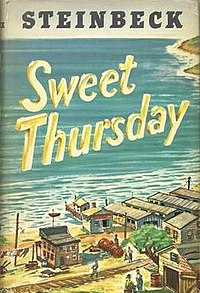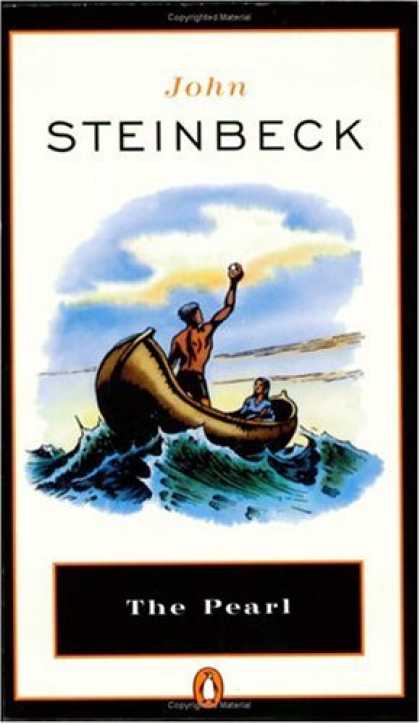Steinbeck's Sweet Thursday takes us back to Cannery Row after the war. He carries on with the same characters, but they, and the town, have been changed by the war. They're not quite the folks we've met before. But because of the way Steinbeck has written the two novels, and perhaps didn't initially intend for Cannery Row to have a sequel, Sweet Thursday can still easily stand on it's own as a completely independent novel.
Following the theme of Cannery Row, the boys are trying to help Doc, this time, by marrying him off! It's easy to slip back into Steinbeck's world and really feel for his characters. He writes in such a real way; he's almost poetic and philosophical in his simplicity. It's amazing. I really liked Sweet Thursday, as I like everything I've read of Steinbeck so far. If you haven't delved into Steinbeck yet, it's about time you pick something up! Read on!
Following the theme of Cannery Row, the boys are trying to help Doc, this time, by marrying him off! It's easy to slip back into Steinbeck's world and really feel for his characters. He writes in such a real way; he's almost poetic and philosophical in his simplicity. It's amazing. I really liked Sweet Thursday, as I like everything I've read of Steinbeck so far. If you haven't delved into Steinbeck yet, it's about time you pick something up! Read on!
Fun Fact: The novel was adapted into the Rodgers and Hammerstein Broadway musical Pipe Dream, which was nominated for nine Tony Awards. The movie version of the book's predecessor, Cannery Row, incorporates several of the story lines in Sweet Thursday





